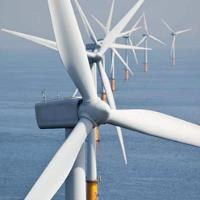(BRUSSELS) – The European Commission adopted on Wednesday three recommendations to help the Member States with transposing and implementing the EU’s amending Directive on Energy Efficiency.
The recommendations are seen as particularly relevant in the context of finalising the EU’s ‘National Energy and Climate Plans’. Putting energy efficiency first is a key objective of the Energy Union. Energy savings help to reduce greenhouse gas emissions and so contribute to the EU’s action against climate change. They also help Europeans to save money on their energy bills.
“We need to make sure that altogether, national contributions on energy efficiency amount to the EU’s 2030 target of at least 32.5 per cent,” said Commission vice-president Maros Sefcovic: “The gap could be as big as approximately six percentage points and therefore, we invite Member States to step up their game. The recommendations adopted today will help Member States better tap existing potential. It is not only about credibility. Let’s not miss the chance to modernise our economies.”
Environment Commissioner Miguel Arias Canete added: “Europe is the largest importer of fossil fuel in the world. With our increased ambition on energy efficiency we put an end to this. The revised energy efficiency rules are a major push for Europe’s energy independence. Much of what we spend on imported fossil fuels will now be invested at home in more efficient buildings, sustainable industries and transport. The new target of 32.5% will boost our industrial competitiveness, create jobs, reduce energy bills, help tackle energy poverty and improve air quality”.
The recommendations contain detailed guidance for Member States on how to enact and best implement various aspects of the amending energy efficiency directive, in place since December 2018. Specifically, the recommendations address:
- the practical implementation of the energy savings obligation for the period 1 January 2021 to 31 December 2030
- the revised metering and billing provisions for thermal energy, and;
- efficiency in heating and cooling
Member States are required to bring into force the laws, regulations and administrative provisions necessary to comply with the amended directive by 25 June 2020, and for the new provisions on individual metering and billing by 25 October 2020. The three recommendations adopted are:
- Commission recommendation on transposing the energy savings obligations under the energy efficiency directive – Annex
- Commission recommendation on the implementation of the new metering and billing provisions of the energy efficiency directive – Annex
- Commission recommendation on the content of the comprehensive assessment of the potential for efficient heating and cooling under Article 14 of the energy efficiency directive – Annex
The Energy Efficiency Directive is one of the flagship pieces in the Clean Energy for All Europeans package in which the EU has set targets to be at least 32.5% more energy efficient by 2030, relative to a ‘business as usual’ scenario.
Further information on the recommendations and the EU’s energy efficiency policy


